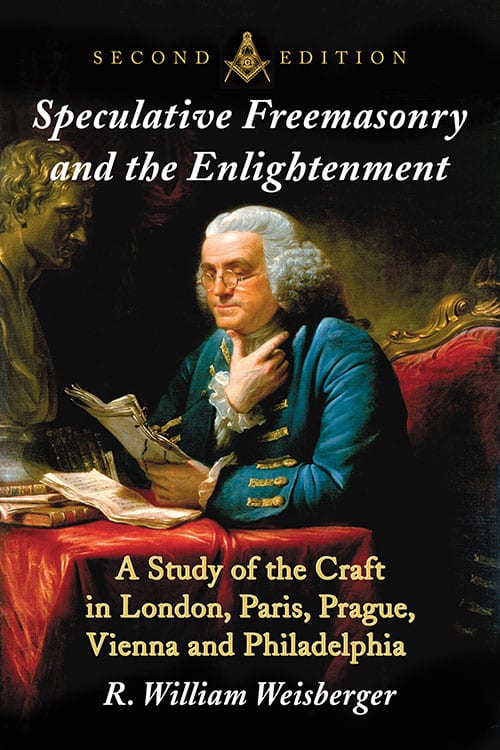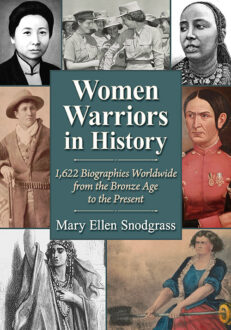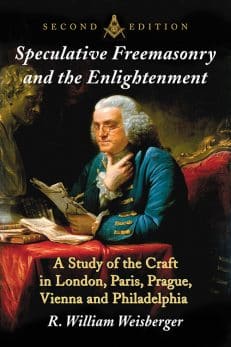Speculative Freemasonry and the Enlightenment
A Study of the Craft in London, Paris, Prague, Vienna and Philadelphia, 2d ed.
$39.95
In stock
About the Book
Freemasonry began with stonemasons in the Middle Ages experiencing the decline of cathedral building. Some guilds invited honorary memberships to boost their numbers. These usually highly educated new members practiced symbolic or “speculative Freemasonry.” The new Masonic lodges and learned societies offered their growing numbers of Protestant, Catholic and Jewish members an understanding of deism, Newtonian science and representative government, and of literature and the fine arts. This work describes how Masons on both sides of the Atlantic were mostly either enlighteners, political reformers or moderate revolutionaries. They offered minimal support to radical revolutionary ideas and leaders.
About the Author(s)
Bibliographic Details
R. William Weisberger
Format: softcover (6 x 9)
Pages: 240
Bibliographic Info: appendices, notes, bibliography, index
Copyright Date: 2017
pISBN: 978-1-4766-6913-7
eISBN: 978-1-4766-2969-8
Imprint: McFarland
Table of Contents
Acknowledgments viii
Preface 1
Introduction 5
1. Speculative Freemasonry in Early Hanoverian London 25
2. Parisian Masonry, the Lodge of the Nine Sisters and the French Enlightenment 65
3. Prague and Viennese Freemasonry, the Enlightenment and the Operations of the True Harmony Lodge of Vienna 103
Conclusion: An Evaluation of Eighteenth-Century
Speculative Freemasonry in London, Paris, Prague and Vienna 143
Appendix 1: Lodges 159
Appendix 2: Benjamin Franklin: A Masonic Enlightener in Paris 160
Appendix 3: Freemasonry as a Source of Jewish Civic Rights in Late Eighteenth-Century Vienna and Philadelphia: A Study in Atlantic History 172
Chapter Notes 193
Bibliography 215
Index 229
Book Reviews & Awards
- “It is commonly accepted that the morals and lessons of early Freemasonry were inspired by the Enlightenment thought, but Weisberger looks to reverse the usual order of the relationship by showing how the goals of the Enlightenment were furthered by Freemasonry. His thesis is ambitious…[in] the sections about the Lodge of the Nine Sisters in Paris and the True Harmony Lodge in Vienna the book finally finds its footing and voice. I found these sections, as well as the appendix on how Freemasonry (and particularly the Philadelphia Lodge of Perfection) worked to secure civic rights for Jews following the American Revolution, to be fascinating reading.”—The Northern Light
- “A useful and thought-provoking exploration of our founding years…recommend”—The Ohio Beacon
- “An important book for the serious Masonic scholar…the reader is provided insights uniquely Masonic; erudite and compelling.”—Donald B. Reece, Past Master, Ohio Lodge of Research





